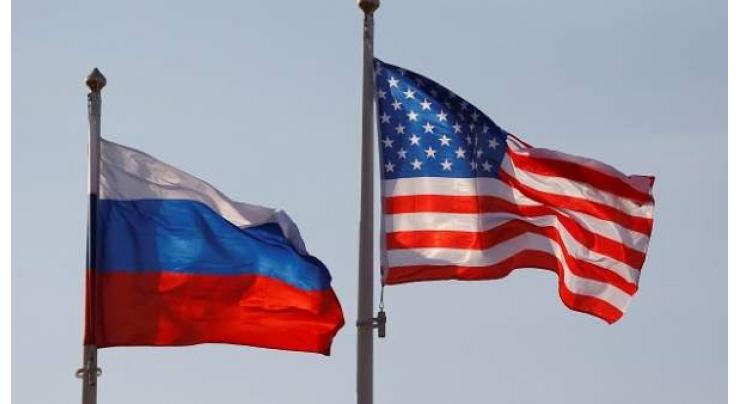
US, Russia Must Engage In Post-INF Dialogue Rather Than Tit-for-Tat Exchanges - NGO
Faizan Hashmi Published August 23, 2019 | 09:52 PM

The United States and Russia should establish a dialogue and channel to exchange information on missile development and testing that could happen now that the Intermediate-Range Nuclear Forces (INF) Treaty has collapsed, rather than engage in dangerous reciprocal actions, Noah Mayhew, a research associate at the Vienna Center for Disarmament and Non-Proliferation, told Sputnik
Earlier on Friday, President Vladimir Putin, at a Russian Security Council meeting, instructed the defense and foreign ministries to analyze the threat posed to the country by US missile development and prepare a "symmetrical response." The statement came after the Pentagon announced on Monday that it had tested a conventional ground-launched cruise missile on August 18 that flew more than 500 kilometers (310 miles), a range banned under the INF Treaty.
According to Mayhew, Moscow should not respond in kind to "preempt reactionist policies that might lead to a true arms race."
"If President Putin does pursue a symmetrical response, a missile test of a similar range would not be difficult to accomplish within the territory of the Russian Federation. The problem with such a response is that it would likely elicit further tit-for-tat action by the United States. In this scenario, nobody wins," he said.
The expert suggested, however, that tests of intermediate-range missiles would "likely become the new normal" since chances for the INF Treaty to be replicated were too low, given China's reluctance to heed US calls to enter talks on this matter and outstanding disagreements between the United States and Russia.
Under such increasingly dangerous circumstances, there is no other reasonable choice but to engage in a dialogue, according to Mayhew.
"What both Moscow and Washington can and should do in the near term is to foster high-level, ongoing dialogue and information exchange on missile development and testing as a risk reduction measure," he concluded.
The United States withdrew from the INF Treaty on August 2 after formally suspending its INF obligations six months earlier. Moscow suspended its own participation in the pact in July. These developments came after both countries had repeatedly accused one another of violating the 1987 treaty.
During his meeting with top government officials earlier in the day, Putin also said that Washington withdrew from the treaty to deploy its intermediate-range missiles across the world. He further stated that the United States' use of a MK-41 launcher in its recent test had justified the concerns Russia had raised while the treaty was still in effect specifically that missiles banned under the could potentially be used by US MK-41 missile launchers in Romania and Poland.
Related Topics
Recent Stories

Currency Rate In Pakistan - Dollar, Euro, Pound, Riyal Rates On 19 April 2024

Today Gold Rate in Pakistan 19 April 2024

Rock-solid Ruud racks up season-leading win in Barcelona

At UN, Iran says it will make Israel 'regret' reprisals

G7 hears calls for 'critical' Ukraine aid

EU seeks to leverage might to confront China, US challenge

5 Customs officials martyred as their vehicle ambushed by terrorists in D I Khan

Pak-New Zealand match called off due to rain

NHA restores traffic on roads affected by recent rains in Balochistan

China to fully support Pakistan's efforts against terrorism: Ambassador Jiang

U.S. envoy calls on Foreign Minister Ishaq Dar

Poland arrests man over suspected plan to kill Zelensky
More Stories From World
-
Duplantis to unleash 'inner' pole vault contest as Olympics beckon
9 minutes ago -
Australia tells citizens to depart Israel, Palestinian territories if 'safe to do so'
19 minutes ago -
Netflix beats expectations on profit and subscribers
29 minutes ago -
US vetoes Palestinian request for full UN membership
29 minutes ago -
Defending champion Swiatek motors into Stuttgart quarter-finals
59 minutes ago -
Netflix beats expectations on profit and subscribers
2 hours ago
-
Ecuador hit by power cuts of up to 13 hours amid drought
2 hours ago -
Israel launches strike against Iran: US media
2 hours ago -
Kenya military chopper crash kills defence chief
2 hours ago -
Oil surges, equities sink as Iran blasts fan MidEast escalation fears
2 hours ago -
Israel launches strike against Iran: US media
2 hours ago -
At G7, Blinken seeks European support for pressure on China
8 hours ago